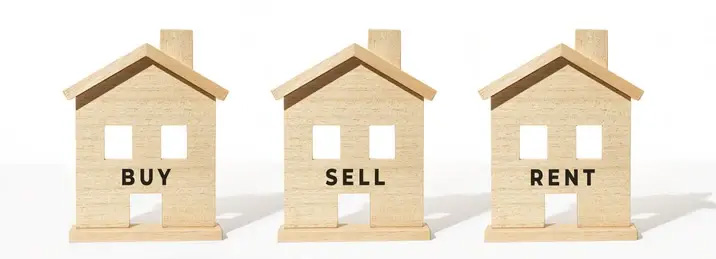Is It Better To Sell a Paid off House or Use It as a Rental?
A common question among investors is: should I sell or rent my house? Whether you have a single-family home, townhouse, condo, or apartment complex, one of the questions you might be asking is whether you should hold your property and rent it out or sell it. And, if you sell, what will you do with the money? There are a few things to consider.
Should I Rent My House Out or Sell It?
As a property manager, asset manager, and investor, this is one of the questions I'm constantly asking. I can always be found running numbers, evaluating goals, and deciding whether I should continue holding property or whether it's the right time to sell. One of the factors to consider is whether you have maxed out the value of the property. You have to think about how the market is performing and whether you can sell for a decent amount. Rotating the sales proceeds is also a good thing to consider, and whether you can do a 1031 exchange. The current inventory is low, so it can be challenging to find something new if you sell what you currently have.
The Benefits of Buying and Holding
Generally, I agree with the Warren Buffett mentality. I believe in buying and holding a good property for the long term. On the investment side, you want to understand your goals. At the beginning of your investment career, your goals might be more aggressive. Or, maybe you're risk-averse, and holding is the correct answer for you.
Risk on Equity
While determining what to do, many investors look at the return on equity, or ROE. This is where you calculate how much equity you have in the home and what that will mean for profits if you sell. Compare that to how much you're making on it as a rental. If that number is low, like three percent, your money isn't working too hard, and it might be best to sell. Look at the market and the available inventory.
Taxes
You have to take taxes into account. You may want to utilize the 1031 exchange or cash out if you sell. Deferring and avoiding taxes is advantageous, so you can consider passing your property on to heirs. Check with your accountant and your attorney. An estate planner can also help. Real estate has a lot of flexibility, and there are options for generating income and creating long-term wealth.
If you are thinking about your primary residence, you can't do a 1031 exchange with that. But you can take advantage of a better tax provision, the primary residence exclusion. Check with your accountant and see if you can qualify. If you've lived there for two or more out of the last five years, you can sell and not pay too many taxes. Some rules go with that, and legislation is constantly changing, so pay attention to the updates to the laws.
Return on Investment
The return on your investment is another standard metric to evaluate whether to sell or rent. Look at how much you're putting into the property and how much you are cash-flowing. Seven percent is not a bad investment, and cash flow at that level probably makes the property worth holding onto.
Decide where you are in your investment career. What you do will depend on your risk tolerance, goals, and the market. One of my main goals for me with real estate is to develop long-term passive income. That's the goal: to generate wealth and cash flow. Holding onto a property for the long term is a great way to go.
If you need help deciding whether to sell or rent or have any questions about property management in Salem, OR, please get in touch with us at Centurion Real Estate Management.


